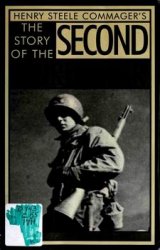Both Soviet identity and its response to the Third World changed more than the American, and this was not a coincidence. Khrushchev’s de-Stalinization was built on a less rigid view of the role of class and class conflict, just as the earlier perception of great threat from the capitalists made it seem dangerous to permit domestic relaxation. As Ted Hopf explains, acknowledging difference at home made the acceptance of differences abroad less threatening. When the distinction between workers and members of the bourgeoisie was taken to be either-or, with no mixtures or complex combinations possible, compromise was difficult at home and abroad; by making class only one of many possible identities for another state, the Soviet Union multiplied its possible relationships in the world.30 The wider scope for what it meant to be a good Soviet citizen or to be on the path to socialism made it much easier for Khrushchev to see the bourgeois nationalist regimes as potential allies, as countries that were moving in the right direction rather than being irretrievably non-Communist. Indeed, local Communist parties could be sacrificed because the local regime was acceptable and a more progressive outcome would come in due course. Of course, there was more than a dose of hypocrisy and traditional international political calculation in this, but we may wonder whether it would have been possible without a change in the sense of what the USSR was.
The relations among the thaw, modifications of Soviet identity, and external relations bring us back to interactions. Identities are shaped by existing and desired relations abroad as well as shaping them. The realization that the Third World was the best ground on which to compete with the West and that this would be possible only if the USSR courted regimes that were constituted differently was conducive to constructing a less rigid Soviet identity. What the Soviet New Times said in its retrospective survey of 1955 also characterized the changes in domestic attitudes: "The desire to find what unites countries, not disunites them, became a universally accepted slogan."31 Similarly, the pressing need for relaxing tensions with the West in order to decrease the danger of war and gain access to Western economic resources and technology not only provided a strong impetus to peaceful coexistence, but also made it more likely that Soviet leaders would adjust their self-image to be consistent with the new policy. People want to think of themselves as principled and consistent, and so their beliefs about many things, including themselves, will be modified to justify their behavior.




 World History
World History









